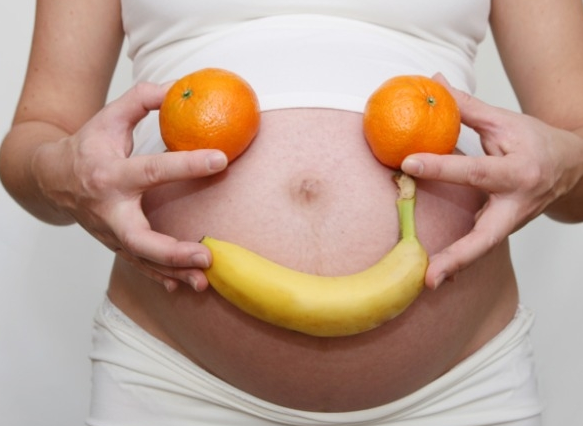The quality of a pregnant woman’s diet is directly related to the health of the unborn child. Having a diet that is deficient in certain nutrients and minerals can increase risks of birth defects and miscarriages. Below are some tips for ways to stay healthy during pregnancy.
Research and Diet
A pregnant woman should get an extra 200 calories per day while pregnant. Women should consult with their physician before consuming certain foods. For instance, deli meats can increase risks of listeria. If you are a fan of deli meats, you must steam your meats to kill any existing bacteria. A diet that is high in animal fat introduces high levels of antibiotics, synthetic hormones and pesticides into the system because they are concentrated in animal fat.
Lowering the amount of pesticides in the diet is vital to protecting the unborn child. Buying organic fruits and vegetables reduces the amount of pesticides in the diet by nearly 90 percent, according to some estimates.
According to Dr. Gilbert Webb, certain foods such as caffeine can actually increase risks of miscarriages. Pregnant women should get at least four servings of calcium each day.

Seeing your Diet at Work
Folic acid derived from foods like fruit, broccoli and spinach can prevent conditions like spina bifida from occurring.
A diet rich in salmon, walnuts and seeds ensures that you are getting adequate levels of Omega-3s, which are essential in protecting the central nervous system.
A little known nutrient, choline, is essential to fetal brain development. A diet rich in eggs, soybeans and wheat germ guarantees that you are getting adequate levels in your diet.
Vitamin A in carotenoids is essential to development of the heart, lungs, respiratory and central nervous system. Pregnant women should have at least 770 micrograms or more each day. Good sources of the substance include carrots, sweet potatoes and dark leafy greens.
Pregnant women have to pay particular attention their diets. Diet is very important to having a successful pregnancy. Your unborn child will benefit from you having a healthy, balanced diet. Tweaking your diet to avoid complications and lower health risks can go a long way to protect your baby.

